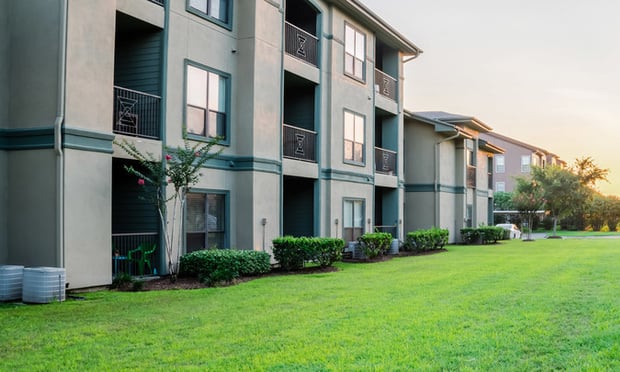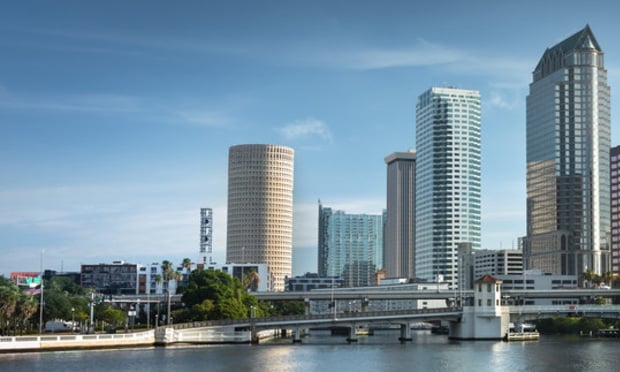DALLAS—With the holiday season officially open, analysts expect shoppers to spend roughly $622.35 per person at one of roughly 115,000 US shopping centers. Among the traditional sights and sounds of the retail venues, shoppers will also notice an increase in a retailing concept that has taken a national foothold—a trend known as “rogue retailing.”
Rogue retailing encompasses food trucks, pop-ups, showrooms and other nontraditional approaches to brick-and-mortar retail, a concept described in CBRE Research's 2016 National Holiday Trend Report. As rogue retailing becomes increasingly more common, landlords are taking steps to ensure national tenants and local players have access to retail space that complements the brand's ambiance, the experience retailers want consumers to have, and is conducive to the wares retailers are looking to sell.
Originally, rogue retailing began as a way for first-time retailers to dip their toes into a market without having to commit to a long-term lease; this concept also provided downside protection to landlords who were not entirely comfortable taking a chance on an unknown (and inherently risky) brand. Recently however, rogue retail locations have matured into a way for large national tenants to test new product lines, sometimes within flagship locations, as well as a way for predominately e-commerce retailers to branch out and create more traditional brick-and-mortar presences.
Landlords Westfield and Simon are embracing these concepts and dedicating space to short-term retailers. Once seen as a space-filler during unexpected vacancies, those spaces are now viewed as a way to rollout local brands, perform demos and offer shoppers a specialized selection of products. Some malls are allocating as much as 5% of retail space in order to have a consistent pipeline of planned, short-term tenants, with lease terms ranging between one and six months, which typically utilize a gross rent structure.
In Dallas-Fort Worth, Kanye West recently opened a Life of Pablo pop-up store at Stonebriar Centre in Frisco. TX. Open for 72 hours, fans waited in line for their chance to purchase items such as $121 t-shirts and $200 sneakers. For the third year running, Unbranded, an experimental pop-up shop, will take over a large storefront on Main Street in Downtown Dallas next month. Unbranded provides space for exhibitors to promote themselves and sell their products. Taking no cut of sales, the goal is to help start-up brands connect with and find new customers.
“Texas' retail business is getting a lot of attention lately because the state boasts a healthy economy, a low cost of living and high employment rates,” Daniel Taylor, managing director, retail, Texas and Oklahoma division of CBRE tells GlobeSt.com. “Unlike markets like NYC or LA, Texas' retail marketplace appeals to consumers who use shopping and dining as a form of entertainment. Forward-thinking landlords have picked up on the rogue-retailing trend and are building out retail space that appeals to short-term retailers who are testing their products in a market before making a possible shift into a brick-and-mortar space. Rents in Texas are relatively cheap in comparison to markets like New York, Los Angeles, etc., so shorter term tenants are able to take advantage of the marketplace. Any retailer, whether it be a pop-up or more established brand, is looking at Texas as a bright spot within the current economy.”
Rogue retailing's tendency to upend traditional lease structures while maintaining retail property occupancy (hence the name) is a win-win for tenants and landlords alike. With national retailers, e-commerce providers and boutique players all looking to expand into a brick-and-mortar presence, consumers should expect to see a variety of new and upcoming tenants alongside favorite brands in retail centers across the country this holiday season.
DALLAS—With the holiday season officially open, analysts expect shoppers to spend roughly $622.35 per person at one of roughly 115,000 US shopping centers. Among the traditional sights and sounds of the retail venues, shoppers will also notice an increase in a retailing concept that has taken a national foothold—a trend known as “rogue retailing.”
Rogue retailing encompasses food trucks, pop-ups, showrooms and other nontraditional approaches to brick-and-mortar retail, a concept described in CBRE Research's 2016 National Holiday Trend Report. As rogue retailing becomes increasingly more common, landlords are taking steps to ensure national tenants and local players have access to retail space that complements the brand's ambiance, the experience retailers want consumers to have, and is conducive to the wares retailers are looking to sell.
Originally, rogue retailing began as a way for first-time retailers to dip their toes into a market without having to commit to a long-term lease; this concept also provided downside protection to landlords who were not entirely comfortable taking a chance on an unknown (and inherently risky) brand. Recently however, rogue retail locations have matured into a way for large national tenants to test new product lines, sometimes within flagship locations, as well as a way for predominately e-commerce retailers to branch out and create more traditional brick-and-mortar presences.
Landlords Westfield and Simon are embracing these concepts and dedicating space to short-term retailers. Once seen as a space-filler during unexpected vacancies, those spaces are now viewed as a way to rollout local brands, perform demos and offer shoppers a specialized selection of products. Some malls are allocating as much as 5% of retail space in order to have a consistent pipeline of planned, short-term tenants, with lease terms ranging between one and six months, which typically utilize a gross rent structure.
In Dallas-Fort Worth, Kanye West recently opened a Life of Pablo pop-up store at Stonebriar Centre in Frisco. TX. Open for 72 hours, fans waited in line for their chance to purchase items such as $121 t-shirts and $200 sneakers. For the third year running, Unbranded, an experimental pop-up shop, will take over a large storefront on Main Street in Downtown Dallas next month. Unbranded provides space for exhibitors to promote themselves and sell their products. Taking no cut of sales, the goal is to help start-up brands connect with and find new customers.
“Texas' retail business is getting a lot of attention lately because the state boasts a healthy economy, a low cost of living and high employment rates,” Daniel Taylor, managing director, retail, Texas and Oklahoma division of CBRE tells GlobeSt.com. “Unlike markets like NYC or LA, Texas' retail marketplace appeals to consumers who use shopping and dining as a form of entertainment. Forward-thinking landlords have picked up on the rogue-retailing trend and are building out retail space that appeals to short-term retailers who are testing their products in a market before making a possible shift into a brick-and-mortar space. Rents in Texas are relatively cheap in comparison to markets like
Rogue retailing's tendency to upend traditional lease structures while maintaining retail property occupancy (hence the name) is a win-win for tenants and landlords alike. With national retailers, e-commerce providers and boutique players all looking to expand into a brick-and-mortar presence, consumers should expect to see a variety of new and upcoming tenants alongside favorite brands in retail centers across the country this holiday season.
Want to continue reading?
Become a Free ALM Digital Reader.
Once you are an ALM Digital Member, you’ll receive:
- Breaking commercial real estate news and analysis, on-site and via our newsletters and custom alerts
- Educational webcasts, white papers, and ebooks from industry thought leaders
- Critical coverage of the property casualty insurance and financial advisory markets on our other ALM sites, PropertyCasualty360 and ThinkAdvisor
Already have an account? Sign In Now
*May exclude premium content© 2024 ALM Global, LLC, All Rights Reserved. Request academic re-use from www.copyright.com. All other uses, submit a request to [email protected]. For more information visit Asset & Logo Licensing.









